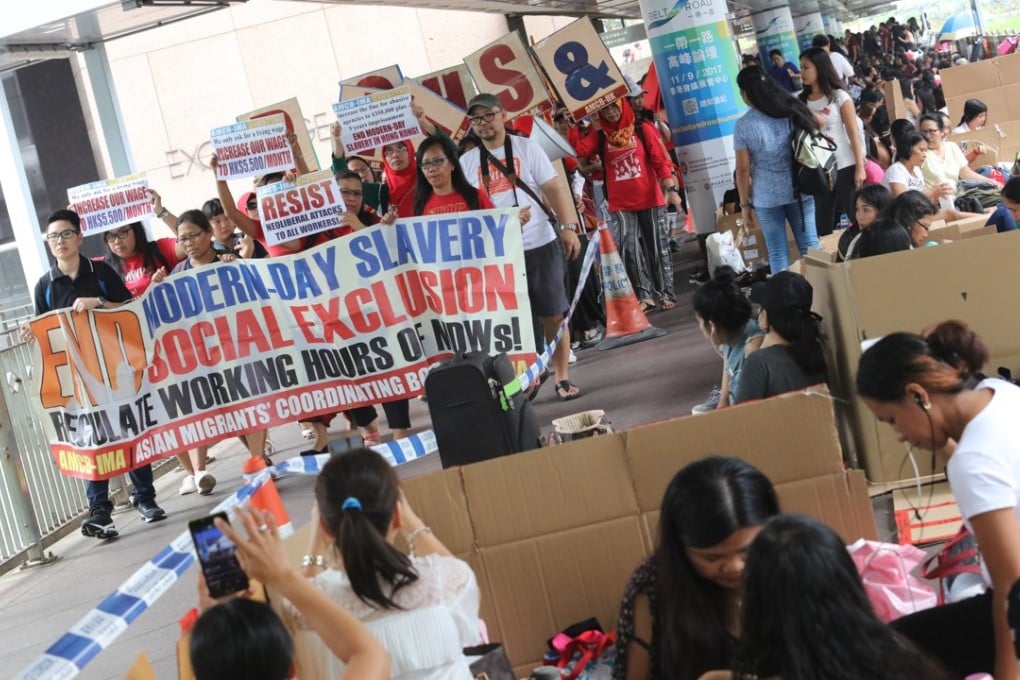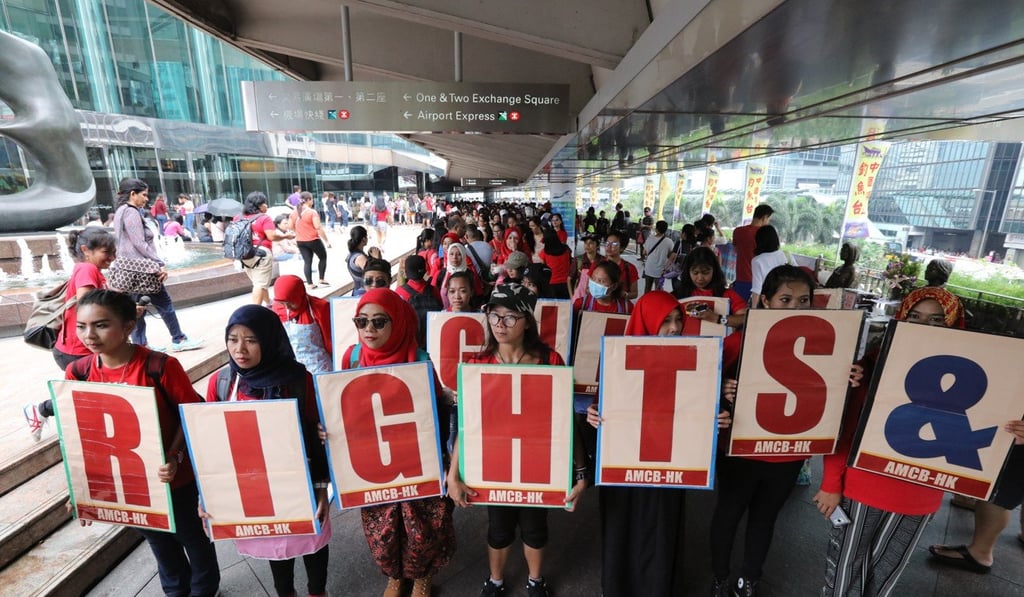Hong Kong’s domestic workers march through city to call for 27.6 per cent wage rise, as concerns mount over recent deaths
Campaigners urge minimum pay increase from HK$4,310 to HK$5,500 per month

About 600 turned out despite the less than favourable weather for the 1km procession from Exchange Square in Central at 2pm to rally outside the Labour Department building.

Campaigners called for an increase in the minimum wage from HK$4,310 to HK$5,500 a month for the 350,000 helpers, plus a rise in the food allowance from HK$1,037 to HK$2,500 per month, according to the Asian Migrants’ Coordinating Body. They also pressed for the government to scrap the “live-in” rule, which requires foreign domestic workers to live with their employers, as they insisted it left them open to exploitation.
The march came as campaigners grow increasingly concerned about the safety of helpers, who are often subject to unregulated working conditions, while sleeping in substandard accommodation, including toilets.

